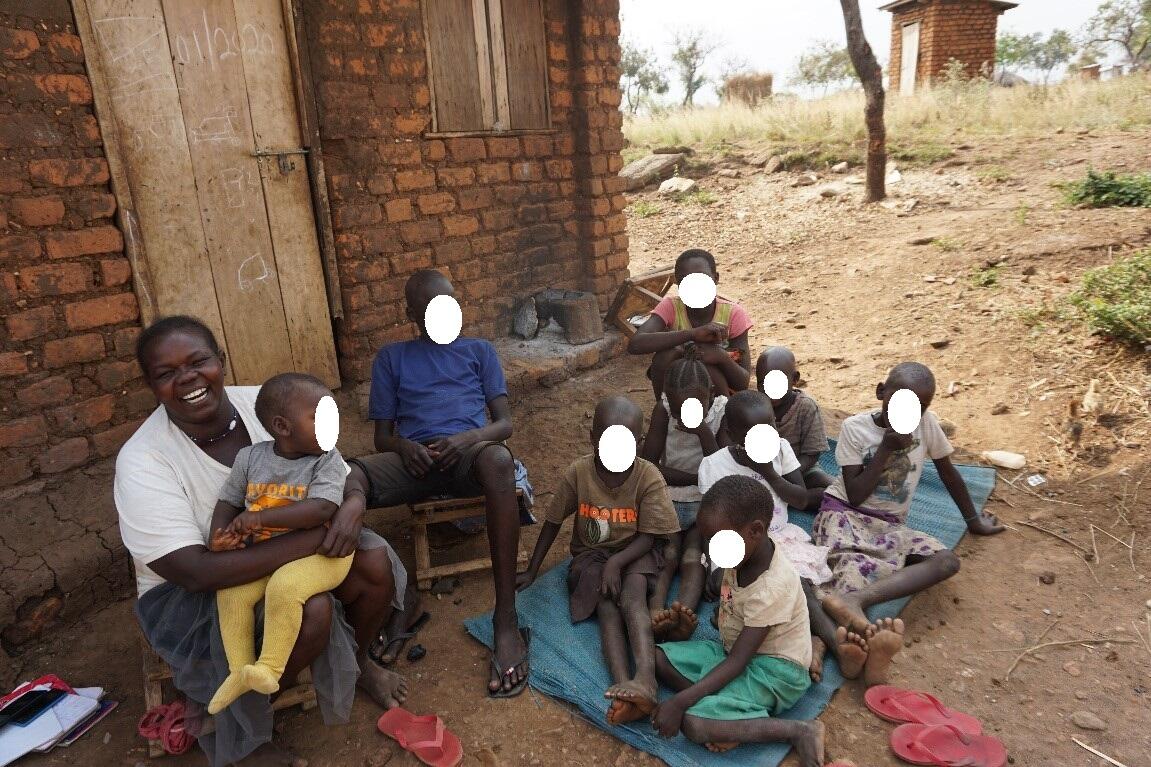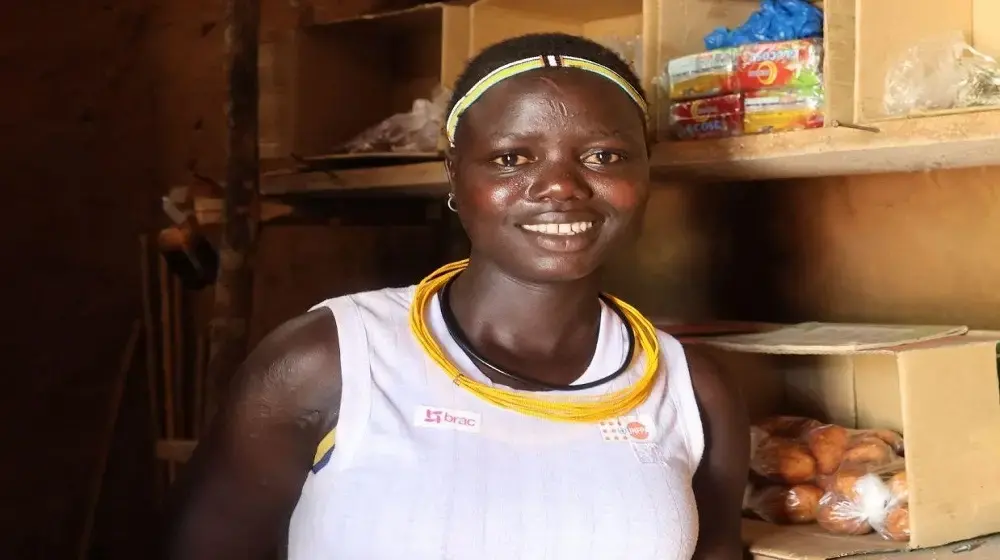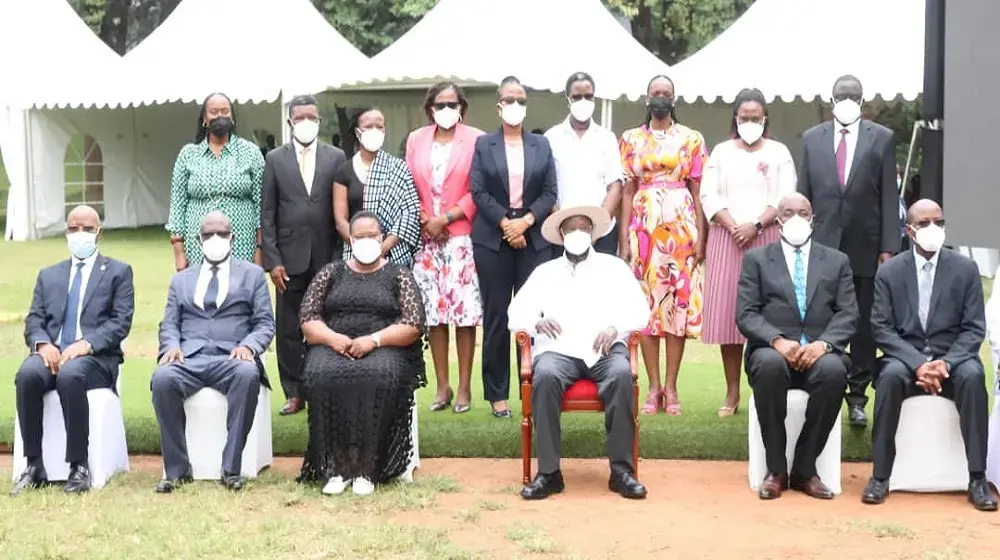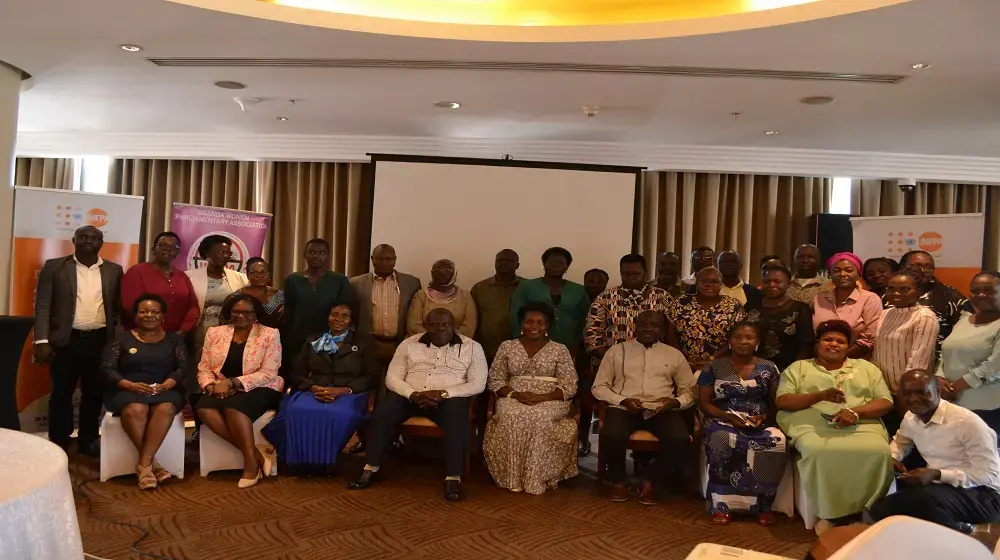Arua, Uganda: Jean Akujo, 40, is a south Sudanese refugee currently living in Rhino Camp in the West Nile district of Arua. She took refuge in Uganda following an outbreak of armed conflict in South Sudan in 2017.
A survivor of gender based violence, Ajuko is now a women leader at Omugo Women Center, a ‘safe space’ supported by the International Rescue Committee (IRC) and the United Nations Population Fund (UNFPA), with funding from the EU Spotlight Initiative. At the ‘safe space,’ women and girls access freely, at any time of the day, support to prevent gender-based violence. Here, women and girls have access to a social worker in case they are experiencing gender-based violence. In addition, they share and learn skills for economic empowerment.
Today, Akujo plays a significant role referring cases of GBV faced by women and girls in her community for psychosocial support or to other service providers depending on the case and preference of the survivors. She has also been empowered to use family planning as a way of spacing her children to become economically empowered.
“Life has not been easy for me and all the other women and girls living in the refugee settlement because of the high rate of GBV among the community caused by high rates of poverty, and harmful cultural practices that promote GBV,” says Ajuko.
She narrates that she faced many challenges in marriage because she got married at a very young age, just when she was 15. It was not easy for her to make a decision regarding the number of children she and her husband could have.
“My husband has been the decision maker in regards to everything. I now have nine children and I have been having complications while giving birth because I have not been spacing my children,” she says.
With the many children, Ajuko faces the burden of providing for all of them: “I have been struggling alone looking after these children, providing them with basic needs as my husband only makes me pregnant and then leaves us.”
Ajuko requested her husband to allow her use family planning, but he declined. She then opted to share the issue with the GBV case worker at the ‘safe space’ who referred her to a health center where she was given an implant that would last her at least three years without getting pregnant.
“I did it without the knowledge of my husband. I tried to talk to him several times but he told me to give birth to all the children in my womb because he does not have brothers, and the children would be his brothers and sisters,” Ajuko narrates.
“Through individual counselling and group psychosocial support sessions I received, I felt stronger and empowered.”
Akujo says that her life has changed since then. She has gained confidence and is now able to go out to do business. Besides, she can now advocate for her rights and the rights of other women in her community.
“Finally, I got the strength to let my husband know and understand that it is also my right to decide and determine the number of children we should have without causing violence in the home,” she says, as her face lights up in a smile to show her beautiful set of teeth.
On average, 20 women and girls receive support services at Omugo women center every day. With funding from the EU Spotlight Initiative, integrated sexual reproductive health and rights interventions, including GBV prevention, have helped build women’s resilience, empowered them to strengthen their social networks, regain self-esteem and confidence, as well as participate in gainful employment.
Complied by Halima Babirye , International Rescue Committee (IRC)





